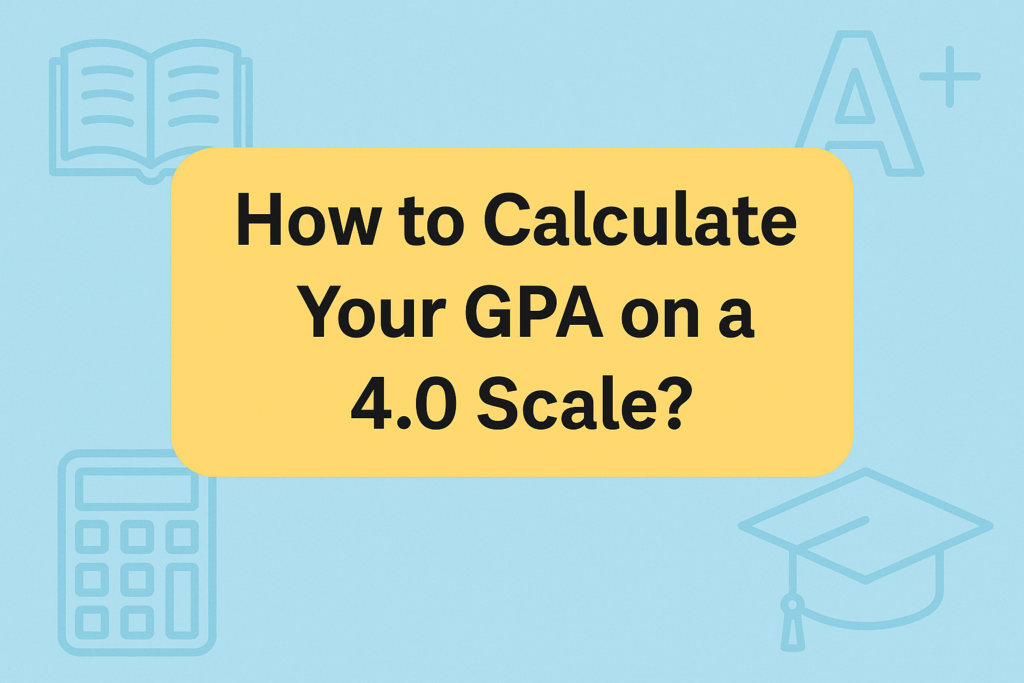Scholarship Calculator Based on GPA and Income
Trying to figure out if you qualify for a scholarship? The Scholarship Eligibility Calculator helps students estimate potential aid based on academic scores, income, and other factors. You enter your details—GPA, family income, test scores, etc. —and the calculator gives you a quick idea of what you might be eligible for.
Estimate your scholarship eligibility and potential award amounts
Understanding the Scholarship Calculator
• Academic achievements account for 40% of your score
• Financial need contributes 30% to the total
• Extracurricular activities make up 20%
• Additional factors add up to 10%
• The calculator provides estimated ranges based on typical awards
Academic Information
Financial Information
Additional Information
Additional Factors
Scholarship Eligibility Score
Overall Score
0%
Estimated Range
$0 - $0
Eligible Scholarship Types
Score Breakdown
Academic
0.0
Financial Need
0.0
Extracurricular
0.0
Additional Factors
0.0
What Is a Scholarship Calculator?
A tool that helps students estimate potential financial aid and scholarship opportunities
A Scholarship Calculator is a tool that gives students an estimated idea of how much financial aid or scholarship money they might qualify for. It’s not exact—no tool is—but it helps you figure out where you stand before you dive into long applications.
You enter a few details: your GPA, maybe your household income, sometimes test scores, or extracurriculars. Based on that, the calculator estimates what you might be eligible to receive. It uses ranges and patterns from common scholarship programs, both merit-based and need-based.
Who Can Use a Scholarship Calculator?
Honestly? Most students can. If you’re in high school and thinking about college, this tool allows you to test the waters. If you’re already in college and wondering whether there’s still aid you can qualify for next semester, it works for that, too.
Parents often use it alongside their kids—especially when comparing schools or planning family budgets. Advisors and counselors use it to help students narrow their options. Some people even check it to confirm they were thinking in the right direction.
You don’t need perfect grades to try it. You don’t need to be sure you’ll qualify. That’s kind of the point—to find out. The calculator uses flexible inputs even if you think you’re outside the typical range.
Whether you’re curious, hopeful, or just trying to be prepared, the Scholarship Calculator gives you a place to begin. That matters more than you might think. Because when it comes to paying for school, waiting until the last minute rarely works out.
🎓 Scholarship Calculator FAQs
1. How do I calculate how many scholarships I can get?
2. What is a scholarship calculator, and how does it work?
3. Can I get a scholarship based on my GPA?
4. Is there any tool to check scholarship eligibility online?
5. How accurate is a scholarship calculator?
6. What information do I need to use a scholarship calculator?
7. Does family income affect scholarship eligibility?
8. Can I use a scholarship calculator for merit-based scholarships?
9. Is there a scholarship calculator for international students?
10. Can I estimate my scholarship amount before applying?
GPA Calculator Suite
Access our comprehensive suite of GPA calculators
GPA Calculator
Calculate your GPA easily
College GPA Calculator
Calculate your college GPA easily
High School GPA Calculator
Calculate your high school GPA easily
Semester GPA Calculator
Calculate your Semester GPA easily
Cumulative GPA Calculator
Calculate your Cumulative GPA easily
Final Grade Calculator
Calculate your Final Grade easily
Weighted Grade Calculator
Calculate your Weighted Grade easily
EZ Grader – Easy Grade Calculator
Calculate your Easy Grade Calculator easily
CGPA to GPA Converter
Convert CGPA to GPA easily
CGPA to Percentage Converter
Convert CGPA to Percentage easily
CGPA to Marks Converter
Convert CGPA to Marks easily
Grade to GPA Converter
Convert Grade to GPA easily
Marks to Percentage Converter
Convert Marks to Percentage easily
Percentage To CGPA Converter
Convert Percentage To CGPA easily
Percentage to GPA Converter
Convert Percentage to GPA easily
Percentage To SGPA Converter
Convert Percentage To SGPA easily
SGPA to CGPA Converter
Convert SGPA to CGPA easily
SGPA to Percentage Converter
Convert SGPA to Percentage easily
GPA Calculator: The Ultimate Guides to Calculate & Improve Your Grades
How Is My Final High School GPA Calculated?
How Is My Final High School GPA Calculated? What Is a Final GPA in High School? Your final high school GPA is a cumulative number that reflects how you performed across all your classes from freshman through senior year. It’s more than just a semester average. It’s the total snapshot. Colleges use this number to […]
How to Calculate Your GPA on a 4.0 Scale?
How to Calculate Your GPA on a 4.0 Scale? What is GPA and Why Does It Matter? GPA stands for Grade Point Average. It sums up your academic performance into one number. If you’re aiming for college, scholarships, or even some jobs, this number quietly sits on the top of your transcript, silently speaking for […]
How do I calculate my overall High School GPA?
How do I calculate my overall High School GPA? Understanding the Basics of High School GPA What Is GPA and Why Does It Matter? Grade Point Average (GPA) is the most common way schools summarize your academic performance. It takes all your grades and converts them into a single number. That number is used by […]




